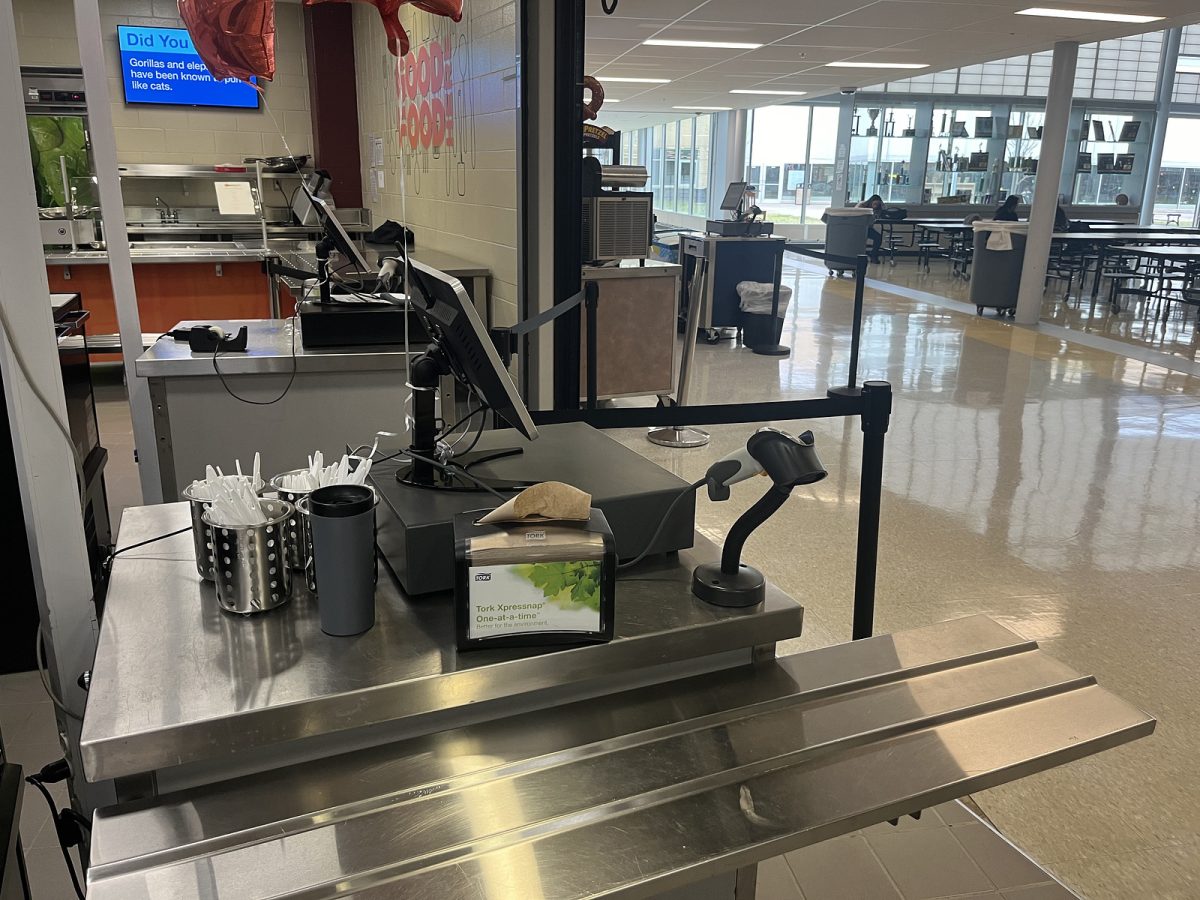The new cafeteria policy on providing utensils to students has met negative reception. Reportedly, many students who brought lunch from home and requested utensils at school have been turned down and were told that they must buy food from the cafeteria in order to get utensils. Junior Gauri Soni is one among many who have experienced this policy.
“I had my soup one day for lunch and my spoon fell [on] the ground. So I went to go ask the lady for a spork and she said that unless I buy something, I would not get a spork,” Soni said.
Sophomore Shahnaaz Shaik recounts the inconveniences that came with this new policy. Shaik said she had bought lunch from school and was provided with a spoon, but had dropped it and tried to get another one. When she was requesting a new spoon, she was questioned. Shaik thinks this policy is futile and that utensil distribution last year was more effective.
“Last year there was a big bowl [of utensils],” Shaik said.
The cafeteria staff and manager denied a request for an interview.
Some students fail to understand why this policy has been implemented. The Director of Support Operations, Ronald Johnson, explained the situation.
“The school district food service program is not funded by local taxes and is a fully funded operation by paid meal sales, al a carte sales, and Federal United States Department of Agriculture (USDA) National School Breakfast and Lunch Program (NSLP/SBP) grant funding,” Johnson said. “Being members of the Federal USDA NSLP and SBP programs, there are very strict rules and regulations on how the funding can be used.”
Due to these strict regulations, the cafeteria is unable to provide utensils to students who do not purchase lunch. Students who buy lunch pay for their meals and additional supplies – such as plates, napkins, and utensils – jointly. When a student who does not buy a meal requests utensils, they are not covering the expenses that the school district must sustain.
“If students are bringing meals from home instead of purchasing a meal from in the school cafeteria, they should bring utensils from home along with their meal from home,” Johnson said.
If students who do not purchase meals are to be provided with additional supplies, the school cafeteria would have to start charging students who bring lunch from home the cost of the utensils they want to use. The school, due to legal binding, is not allowed to use the Federal USDA funding to provide additional supplies to students who do not buy lunch at the cafeteria.
Whatever be the case, students convey their difficulty coming to terms with this policy.
“I just feel like if you have your lunch you should have to be able to have the utensil to eat it with. Sometimes you just can’t carry a fork on you, sometimes you lose it, sometimes you forget it. We’re human beings,” sophomore Jaslyn Chouhan said.




Susana • Dec 1, 2023 at 9:51 am
a little empathy with students would be enough.
Tejaashree Apparsundaram Dhanasivam • Nov 28, 2023 at 11:23 am
I totally agree with this, this issue should be addressed and should see a change.